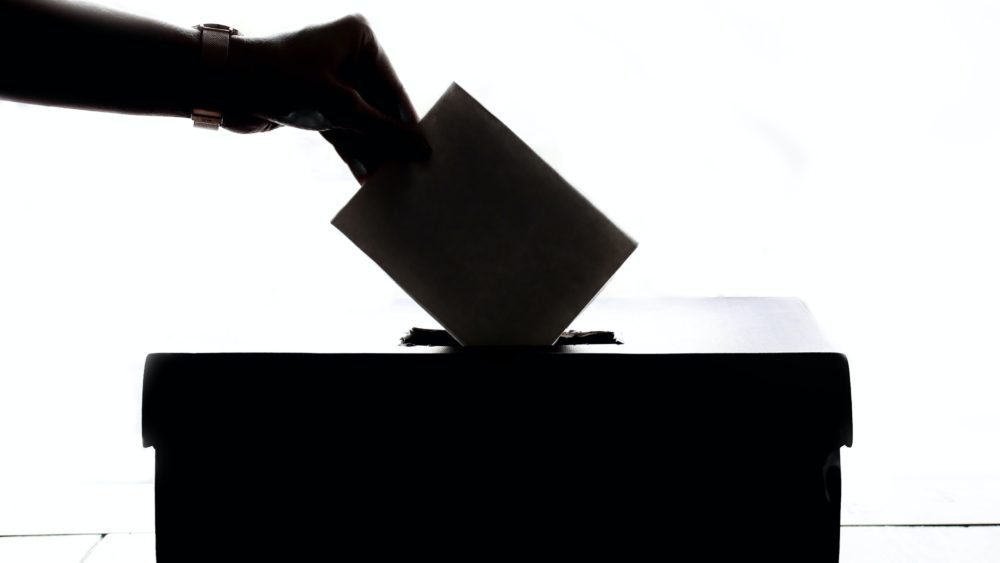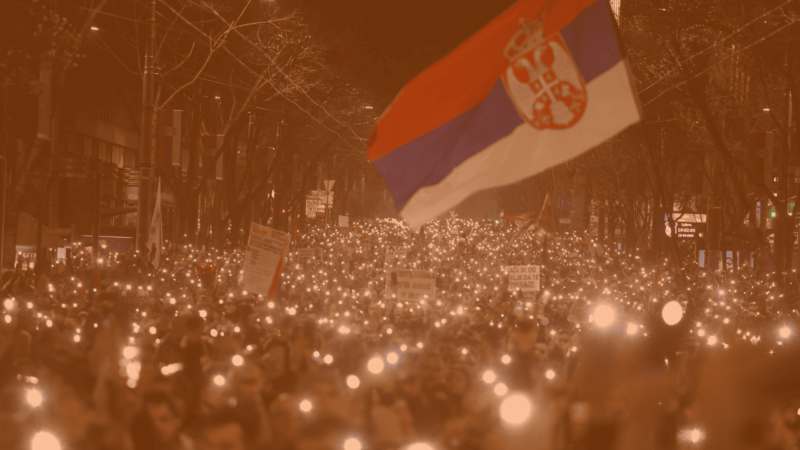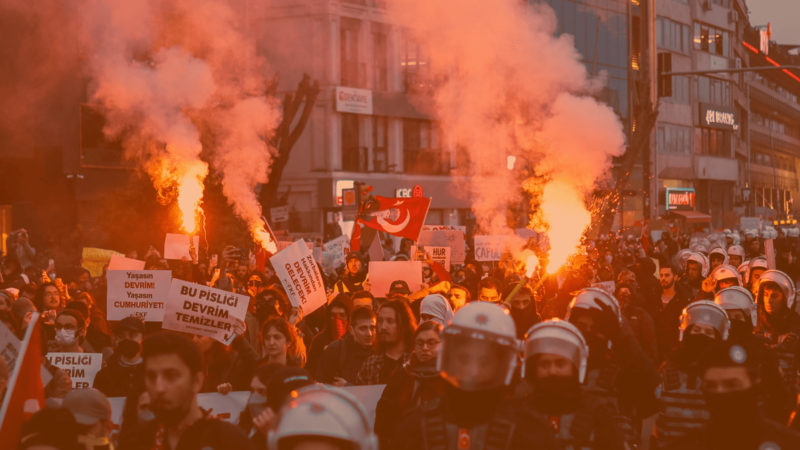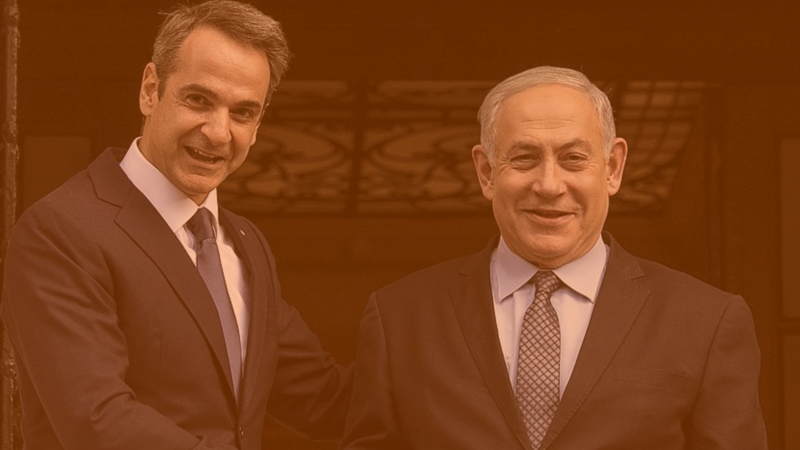The misguided celebrations surrounding the inauguration of Biden-Harris offer an excellent opportunity to see the vacuousness of identity politics in action, and offer a general reminder not to lose sight of the real route to power
A lifetime ago, I used to lead tourists around London on a “Signs and Symbols” tour. One of the most striking realisations while researching the tour was that symbols are adaptable, malleable concepts. They are dependent on their cultural context. Take the image of a serpent, for example: its meaning varies across the globe from a symbol of evil to one of healing, or from the representation of the cyclical nature of life to an expression of the endlessness of the cosmos. Symbols are also defined by the period during which you come across them: an owl in medieval Europe was a symbol of sloth and laziness because of its nocturnal nature, while in classical times it was a symbol of wisdom due to its relationship with the Goddess of wisdom, Athena. The symbolic plot thickens further when one considers that they can be defined by the intention of the person wielding their cryptic power: one architect might include ivy in the columns of his cathedral because they are aware that it symbolises eternity, while another might do so because they saw it somewhere else and, well, thought it looked nice. Symbols on their own, at any rate, are nothing. Mean nothing. Context is what gives symbols power and without it they are nothing more than an image.
Consider, within this context, identity politics. We have seen of late fellow social media users share messages of hope such as the following by Stacey Abrams:
While today’s terrible display of terror and meanness shakes us, let’s remember: @ossoff, Jewish son of an immigrant & @ReverendWarnock, first Black Senator from Georgia, will join a Catholic POTUS & the first woman, Black + Indian VP in our nation’s capital. God bless America.
— Stacey Abrams (@staceyabrams) January 7, 2021
She mentions that Joe Biden is Catholic, Kamala Harris Black and Indian, and so on, but doesn’t touch on the one thing that should matter in politics: what is their programme? Even when the programme is quite rigorous and progressive, as is the case with that of Alexandria Ocasio-Cortez, the instinct of many is to instead flaunt the fact that she is Latina.
Is it not the uttermost expression of the continued heritage of colonialism and patriarchy to reduce individuals to their ethnicity, their gender or sexual orientation? What do I care that Margaret Thatcher was the first woman Prime Minister, when her politics were so monstrous? What do black people make of the fact that Barack Obama was black, when he did so little to tackle the inequality that people in the United States, and especially the black community, suffer from?
Identity politics
Identity politics has powerful and important philosophical elements underpinning it: a foundation in fundamental truths that lend the entire vacuous concept credibility. The basic principle, for example, that all people should be unfettered when pursuing their aspirations, or when living their lives in general. It should be as natural to see a woman in a position of power as it is to see a man, and the colour of one’s skin should not negatively affect their life opportunities or the way in which they are treated by others. And then that essential fact is taken and reduced to a variety of different approaches, based on the injustices faced by different groups. The core value of “freedom for oppression” that unites all these struggles is fragmented and divided along various fault lines.
Does the fact that Kamala Harris is of black-Indian heritage carry any inherent significance or value in terms of the struggle to address inequality or discrimination? Is her election a success in and of itself, without reflecting on what she represents, not symbolically, but through her ideas and politics? Surely, the only thing that matters when picking a politician to support should be what that politician will do with the power we give them. Those who guide the conversation away from this core principle — that is to say, about politics, programmes and the likelihood for real change that a person represents — and over to the external symbolism of a candidate or an administration — are ultimately motivated by the fact that they cannot win the argument on content. If they did, they would not feel the need to shift the focus.
All this is not to say that the election of a black president, or a black-Indian woman Vice President, is in and of itself meaningless — of course not. Apart from being a reward for the superhuman effort these people had to make to get to where they are, their election is a reflection of our own progress, of our own ability as a society to not discriminate against those people and elect them to positions from which they may represent us. Of course, combating hateful and discriminatory ideologies is a never-ending struggle against ourselves and society’s worst instincts, but their election shows how more and more people who look different to their predecessors can find themselves in positions of power, which is fantastic and proof that when it comes to discrimination and lifting the glass ceiling, our societies are making some progress.
However, electing people who symbolically represent our ideals for progress means nothing if they do not wield radical political programmes. Biden himself stated that nothing would ‘fundamentally change’ if he was elected and Kamala Harris as VP is exactly the kind of pseudo-progressive smokescreen that his presidency would require. A quick overview of her contradiction-filled legal and political career confirms that she can dog whistle with the best of them. It is not good enough to create the space for more women and people from minority groups to be elected, if it comes at the cost of them being able to affect change. In this context, their election is not a success; it is a consolation prize. And, if they are elected but ineffectual, that only serves to ultimately undermine the electability of the groups they represent.
Which brings us to the wider problem of focusing on symbolism rather than content and effectiveness. When we are entertaining the idea that Trump has been defeated, we are flirting with escapism at a time when it is particularly dangerous to do so. The politics and politicians (regardless of their race, gender, sex, or religion) whose failure to engage meaningfully with the real problems faced by millions of Americans have once again triumphed. Hailing them as our liberators from Trumpism, when in fact they are the hotbed that developed the fascist bacterium that is plaguing the US in the first place, is only allowing for the disease to mutate and grow stronger.
It alienates ever more people who know, from lived experience, that a return to “normal” is in no way what their lives, or the planet, needs. It is an unquestionable declaration of war on anyone who voted for Trump or dared to believe (however erroneously) some part of his rhetoric of radical change. The Democratic Establishment, which is dependent on the status quo for its continued survival, has not defeated Trumpism: it has empowered it. And when Trumpism returns, it might do so without a clown at the helm. At a time when more and more people are losing hope in democracy’s ability to change their lives for the better, the most dangerous thing one could do is to support and glorify the election of politicians that add to this perception.
Europe suffers from the same power-obsessed sclerosis that is dooming all of us to environmental apocalypse and socio-economic disaster. Every argument levelled against the political establishment in the USA in this article can also be levelled against its European equivalent. Just a brief overview of the state of affairs in Europe confirms this: the rise of the far-right, the inability of the European Union to respond to the crises it is facing, our pseudo-environmentalist policies, all characterised by an insistence to focus on appearances rather than substance — a favourite example is what the European Commission is desperately trying to present as a “Green” New Deal, or the classist undertones of what was supposed to be a shining example of European solidarity: the Recovery Fund. It is the backdrop for the drama of a political Establishment that is out of touch, out of ideas, and unwilling to give up its hold over the current system, even though that system is doomed to collapse (taking us all down with it).
In our effort to liberate all those subjugated by power-structures such as colonialism, patriarchy, and capitalism, we cannot afford to shift our gaze away from the means through which this liberation will come about.
We cannot afford to take solace in empty symbols
Rather, we must engage in the struggle itself. Having a woman in a position of power is not necessarily a victory in the struggle against patriarchy if she does not remove barriers for fellow women. Having a person of colour in a position of power does not address racism and its symptoms if they do not alleviate poverty and discrimination for marginalised groups. And indeed, they all mean nothing if they focus on their own communities and do not act as leaders for all people — failure to do so only entrenches the right-wing argument that politics is about “us-and-them”, instead of the Left’s ‘us’. What we need is not a conglomeration of champions of various causes, but individuals whose vision and political framing aims at bringing us all together.
Having a woman, or a member of a minority group, elected is not good enough. Reducing people to their identity is a betrayal of their humanity and their right to engage with the world as complex human beings. It is also a betrayal of our own struggle to settle for symbols instead of political actors with rigorous ideas for change, whoever they might be. Symbols are important, but they mean nothing without their context. We need both.
The views and opinions expressed here are those of the author and do not necessarily reflect DiEM25’s official policies or positions.
Do you want to be informed of DiEM25's actions? Sign up here















